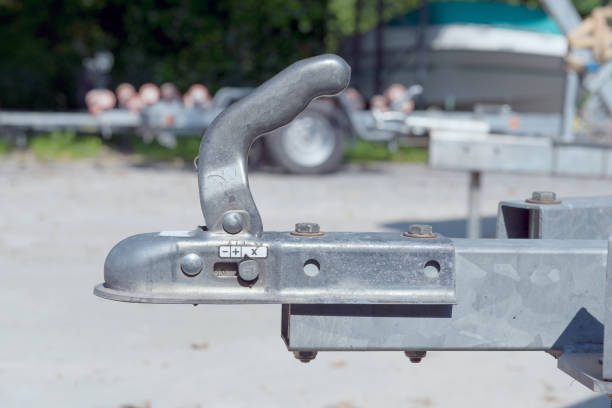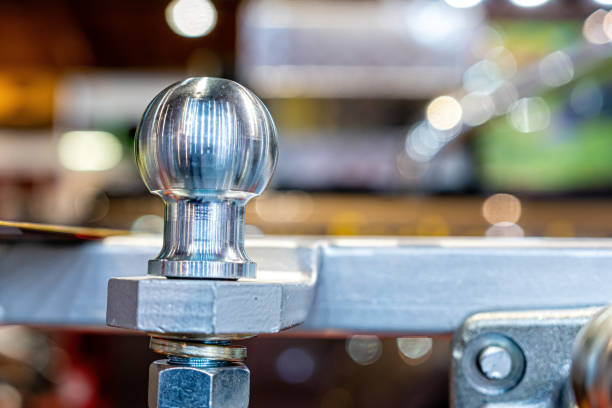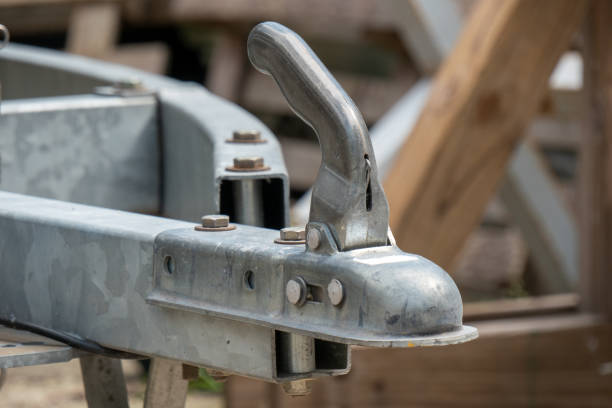Are Aluminum Hitches Strong Enough? Knowing About Their Power and Dependability
Are Aluminum Hitches Strong Enough?
Major among them are strength and safety as far as towing is concerned. Your experience may depend on the kind of hitch you use, whether you need to pull a small trailer to get some Christmas fun or you need to transport heavy loads to perform your duties. The worried drivers need to know: Are Aluminum Hitches Strong Enough? To have the issue answered about the truck and SUV owners. Aluminum hitches, lightweight and corrosion-resistant, have become common, and still, some question whether they can bear the pressure.

In this guide, they explain this topic in every facet by combining all knowledge with reality, technical expertise, and practical tips so that you can come up with the best decision of whether you should select the aluminum hitches as the right products to satisfy your towing needs.
What are aluminum hitches?
Before talking about the strength of aluminum hitches, it is important to know what they are made of and how they may differ from the common steel versions. The towing parts are done with billet aluminum or aircraft-grade aluminum and are called aluminum hitches. This kind of material is appreciated because it is very light compared to steel and can offer good tensile strength. The actual question is… what happens when you require consistent heavy-duty towing? This will all depend on various factors, including their design and engineering as well as the weight ratings assigned by the manufacturer.
The Aluminum Hitch Engineering
Not all aluminum is created equal, as people may be thinking. Good aluminum hitches are made with either billet aluminum OR forged aluminum, not cast. Billet aluminum and forged materials are highly strong and fatigue-resistant, something important when dealing with the results of towing. An example of tests under which the leading brands put their hitches is SAE J684, which tests the capacity to provide performance in ideal conditions. By mere why are aluminum hitches strong enough? Just consider: a lot of these hitches clear or even surpass the same tolerance of steel counterparts.
The aluminum compared to the steel hitches
Steel is the preferred premium towing material of all time due to its unmatched strength and low-cost advantage. However, it also implies certain drawbacks, and the first one is weight and sensitivity to corrosion. Aluminum hitches are considerably lighter and not rust-prone and hence better suited to those drivers who live in an area where it snows or who live on the coast or in snow belts where roadways are treated with de-icing salts during the colder months. At least in the majority of cases, when there is light-to-medium towing. They like to be used in moderate industrial applications, but with the ease of aluminum, they can also be used to pull trailers, boats, campers, and small utility loads.
Towing Capacity and Load Ratings
Every hitch, be it aluminum or otherwise, has a specified manufacturer towing capacity. In this case, we have the tests used and the compliance with federal rules. The bigger, the better, as most of the good aluminum hitches are rated at 6,000 pounds to 14,000 pounds by configuration. As a way of making sure that you will have a proper combination between your hitch rating and you’re towing needs. Once your trailer is in the excluded weight, are aluminum hitches strong? Enough stops being a problem; on the contrary, it becomes a matter of aptness and appropriate assembly. The load rating should not be surpassed by any hitch, either steel or aluminum.
Benefits of Aluminum Hitches
Besides being strong, aluminum hitches are also characterized by other user-friendly features. The first is weight loss. Investing in a steel hitch will only waste your vital pounds, and an aluminum hitch will make it lighter and easier to handle, besides being more economical. The other important advantage is corrosion resistance.
It does not rust and therefore will never be in good condition relative to others; this can be very helpful, just in case you tow a great deal in wet or salty surroundings. With such benefits, the question many want to ask is, are aluminum hitches strong enough so that they can frame out the heavier and rust-prone steel ones? This is an objectionable no as to most personal and recreational towing uses.
Testimony and Real-Life Experience
Other owners of trucks who have switched over to aluminum hitches have been discovered to be highly satisfied. Easy to install, less tension needed on the installation, and high reliability are some of the reasons why many articulate their reasons. James H., a Colorado native and camp veteran, reports, I have been towing my 8,000-pound trailer in the Rockies now, and for the last two years, I have been using an aluminum hitch. Nothing whatsoever.” Once the product is in the hands of real users, such feedback will make Are Aluminum Hitches Strong Enough less theoretical discussion and more a proven fact in far too many cases.
Periodic and Wear Resistance
The other reason why aluminum hitches are tough and durable is their low maintenance profile. The steel hitches will normally require rust-antiseptic finishes or some periodic treatment to stay in form. Nevertheless, aluminum hitches do require slight maintenance. They will give years of service with a simple wipe-down and periodic semi-annual inspection of cracking and/or fatigue. And even when well-kept and within the ranges of weight, are aluminum hitches strong enough to remain as long-lasting as steel? Sure, and sometimes longer, as they are made of rust-free material.
Manufacturer Trust, Manufacturer Certification
In the end, you want to purchase a towing product you can trust because not all aluminum hitches are created equal. Look out for manufacturers with lifetime warranties ISO certification or SAE-registered towing standards. Brands such as Weigh Safe, Andersen Hitches, and B&W have already earned a running reputation through the precision of their engineering and test procedures. Provided that your business remains among the industry leaders, the question Are Aluminum Hitches Strong Enough? Has an answer at hand on most occasions because these firms have already proven the product to be reliable.
Some of the Negatives to Consider
Nothing is perfect, and aluminum hitches also have their limits. Steel is also possibly more appropriate (higher sys yet again) in heavy-duty, industrial-duty towing. Aluminum will also demonstrate cosmetic slights such as scratches and dents. But with any consistent towing beyond 15,000 pounds, these problems are trivial by comparison. The usable question is, are aluminum hitches strong enough in your case? The benefits greatly outweigh the limitations for the vast majority of the consumers, especially those who tow boats, trailers, or even campers.
Conclusion: What do you do?
Taking everything into account, the evidence on both levels, engineering, and practical use, the statistics are overwhelming that aluminum hitches are indeed stiff enough to meet most towing needs. They are less bulky, they are not corrosive, and they have the backing of a test and a positive user experience to rely on. Steel remains the dominant performer in ultra-heavy-duty chores, but even aluminum hitches do not fall short when it is a matter of light- or medium-intensity towing. When you find yourself muttering, are aluminum hitches strong enough? Remember that in some cases, strength may not always be heft, and the age of material innovation has turned aluminum into a solid competitor in the competition realm of towing.

FAQs
To hitch a camper or boat?
Yes, most aluminum hitches will be 6,000 to 14,000 pounds, which is way above sufficient to deal with most travel trailers and boats.
Do aluminum hitches have stress-prone problems?
No, high-grade forged/billet aluminum hitches are able to support high towing weights, and they have to be tested fully before entering the market.

0 Comment